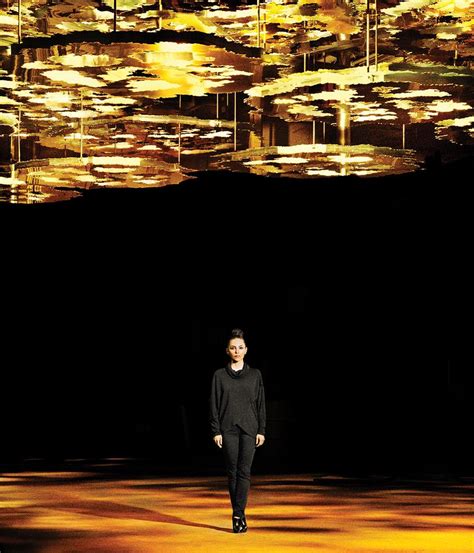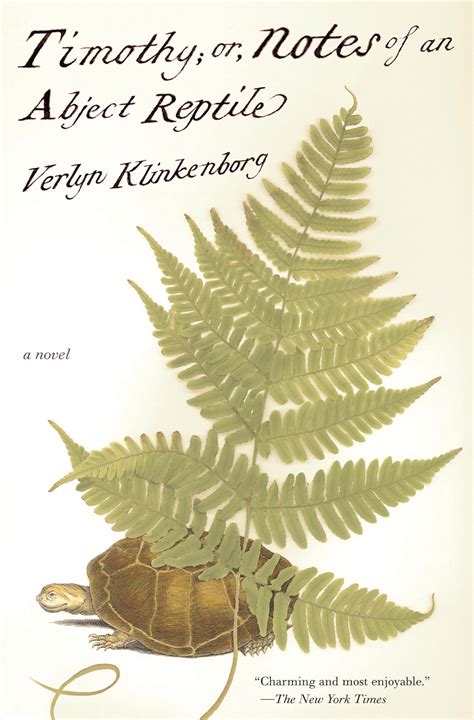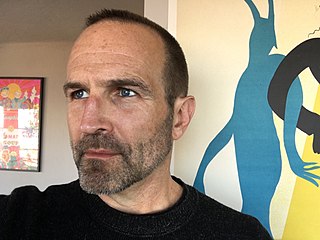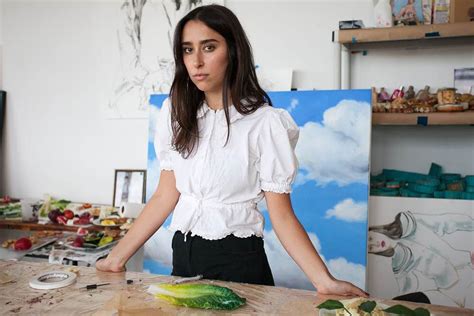Top 920 Aesthetic Quotes & Sayings - Page 16
Explore popular Aesthetic quotes.
Last updated on December 22, 2024.
Even as a child I was fascinated by death, not in a spiritual sense, but in an aesthetic one. A hamster or guinea pig would pass away, and, after burying the body, I'd dig it back up: over and over, until all that remained was a shoddy pelt. It earned me a certain reputation, especially when I moved on to other people's pets. "Igor," they called me. "Wicked, spooky." But I think my interest was actually fairly common, at least among adolescent boys. At that age, death is something that happens only to animals and grandparents, and studying it is like a science project.
Perhaps there may come into my art also, no less than into my life, a still deeper note, one of greater unity of passion, and directness of impulse. Not width but intensity is the true aim of modern art. We are no longer in art concerned with the type. It is with the exception that we have to do. I cannot put my sufferings into any form they took, I need hardly say. Art only begins where Imitation ends, but something must come into my work, of fuller memory of words perhaps, of richer cadences, of more curious effects, of simpler architectural order, of some aesthetic quality at any rate.
Writing is the act of creation. Put words on page. Words to sentences, sentences to paragraphs, paragraphs to 7-book epic fantasy cycles with books so heavy you could choke a hippo. But don't give writing too much power, either. A wizard controls his magic; it doesn't control him. Push aside lofty notions and embrace the workmanlike aesthetic. Hammers above magic wands; nails above eye-of-newt. The magic will return when you're done. The magic is what you did, not what you're doing.
Both Kant and Fichte thought of traditions of revealed religion as ways of symbolically (that is, with aesthetic emotional power) thinking about our moral condition. Both thought that religion would become more and not less powerful, emotionally and morally, if the claims of scriptures and religious teachings were taken symbolically rather than literally (whatever 'literally' might mean in the case of claims that are either nonsensical or outdated or historically unsupportable if taken as metaphysical or historical assertions).
I am, I must confess, suspicious of those who denounce others for having too much sex. At what point does a healthy amount become too much? There are, of course, those who suffer because their desire for sex has become compulsive; in their case the drive (loneliness, guilt) is at fault, not the activity as such. When morality is discussed I invariably discover, halfway into the conversation, that what is meant are not the great ethical questions but the rather dreary business of sexual habit, which to my mind is an aesthetic rather than an ethical issue.
We live in a world full of accidents finally in which on aesthetic principles have a consistency of which we can be sure. Right and wrong we will struggle with forever striving to create and maintain an ethical balance. Right and wrong we will struggle with forever, striving to create and maintain an ethical balance; but the shimmer of summer rain under the street lamps or the great flashing glare of artillery against a night sky – such brutal beauty is beyond dispute.
Often, we try to repair broken things in such a way as to conceal the repair and make it “good as new.” But the tea masters understood that by repairing the broken bowl with the distinct beauty of radiant gold, they could create an alternative to “good as new” and instead employ a “better than new” aesthetic. They understood that a conspicuous, artful repair actually adds value. Because after mending, the bowl's unique fault lines were transformed into little rivers of gold that post repair were even more special because the bowl could then resemble nothing but itself.
We recognize that our progress as a species does not have to be defined in terms of wealth or material and physical growth any more than our progress as individuals has to be defined in terms of physical growth. Physical growth of the body reaches a limit, but the character and the soul of the individual continues to grow, or at least has a chance to continue, often to our last breath. It is simple minded to define our well being in material terms, when that well-being has an aesthetic dimension, and intellectual dimension, a moral dimension.
Don't get seduced by your own stuff. Don't get high on your own supply. The hardest thing as a filmmaker is when you're watching a film that you've worked on for several years. You know every frame so intimately that holding lots of the objectivity of a new viewer who has just seen it for the first time is the hardest thing. Every aesthetic decision you make - and you make thousands of them every day, have to - in theory, must be done from you being a blank slate. You almost have to run a program, like a mind wipe, every time you watch the movie.
I love jazz. So to me, there are two main types of jazz. There's dancing jazz, and then there's listening jazz. Listening jazz is like Thelonius Monk or John Coltrane, where it's a listening experience. So that's what I like; I like to make stuff that you listen to. It's not really meant to get you up; it's meant to get your mind focused. That's why you sit and listen to jazz. You dance to big band or whatever, but for the most part, you sit and listen to jazz. I think it comes from that aesthetic, trying to take that jazz listening experience and put it on hip-hop.
I think that there is a middle-class desire, and maybe an almost universal desire, among many human beings to live in clean neighborhoods, among people like themselves, around people with whom they feel comfortable. That can be exclusive, it could be exclusionary. It could be racist, classist, genocidal, and so on. Most people like comfort. Now what provides a sense of comfort varies. I do think that people who like living in cities like small-scale human interaction and they like the social dimensions of aesthetic diversity that Jane Jacobs wrote about.
So I swear to God, I took one year where I just said, This year, I'm just going to cop to it and say to people, 'Okay, where did we meet?' But it just got worse. People were more offended. Every now and then, someone will give me context, and I'll say, 'Thank you for helping me.' But I piss more people off. You get this thing, like, 'You're being egotistical. You're being conceited.' But it's a mystery to me, man. I can't grasp a face and yet I come from such a design/aesthetic point of view. I am going to get it tested.
We are not built for the mountains and the dawns and aesthetic affinities, those are for moments of inspiration, that is all. We are built for the valley, for the ordinary stuff we are in, and that is where we have to prove our mettle. Spiritual selfishness always wants repeated moments on the mount. We feel we could talk like angels and live like angels, if only we could stay on the mount. The times of exaltation are exceptional, they have their meaning in our life with God, but we must beware lest our spiritual selfishness wants to make them the only time.
Art is not and never has been subordinate to moral values. Moral values are social values; aesthetic values are human values. Morality seeks to restrain the feelings; art seeks to define them by externalizing them, by giving them significant form. Morality has only one aim - the ideal good; art has quite another aim - the objective truth... art never changes.
The Unexpected stalks a farm in big boots like a vagrant bent on havoc. Not every farmer is an inventor, but the good ones have the seeds of invention within them. Economy and efficiency move their relentless tinkering and yet the real motive often seems to be aesthetic. The mind that first designed a cutter bar is not far different from a mind that can take the intractable steel of an outsized sickle blade and make it hum in the end. The question is how to reduce the simplicity that constitutes a problem ("It's simple; it's broke.") to the greater simplicity that constitutes a solution.
In reality, there is a single integral community of the Earth that includes all its component members whether human or other than human. In this community every being has its own role to fulfill, its own dignity, its own inner spontaneity. Every being has its own voice. Every being declares itself to the entire universe. Every being enters into communion with other beings.
In every phase of our imaginative, aesthetic, and emotional lives we are profoundly dependent on this larger context of the surrounding world.
Eisner mentioned he was uncomfortable calling Kirby someone with heavy artistic intent. I paraphrase, but Eisner felt Jack was mostly
concerned with hitting his page count, telling good stories, and
keeping his family fed. Not pursuing some aesthetic ideal - to seek
that motive in Kirby's work was, he suggested, misguided. I happened to be holding the original artwork to the Devil Dinosaur #4 double-splash, which I turned around and showed Eisner - who took a moment, and said something uncharacteristic: “Okay, I might be wrong.
Religion is not about accepting twenty impossible propositions before breakfast, but about doing things that change you. It is a moral aesthetic, an ethical alchemy. If you behave in a certain way, you will be transformed. The myths and laws of religion are not true because they they conform to some metaphysical, scientific or historical reality but because they are life enhancing. They tell you how human nature functions, but you will not discover their truth unless you apply these myths and doctrines to your own life and put them into practice.
The main reason I decided to study Latin American literature was because I'd gotten somewhat bored by the American fiction I was reading. I am not drawn to a specific style or aesthetic. When I think about literature, I think about it in the three languages I read easily - English, Spanish, and Portuguese. The authors I prefer are all very different and are not limited to certain genres or even certain time periods. Reading across three languages is a way for me to diversify my intake as a reader, not to tunnel into certain categories or demographics.
I think seeing is about truly looking, observing, and taking things in with an open mind. It's easy to see things at face value but some of the most beautiful things are not apparent at first glance. The works that stick with me and that I find to be most beautiful are often not aesthetically inviting right off the bat. So I think having an open mind and allowing the lines to blur between art, music, fashion, food, what have you, all leads to cultivating a much more open and enjoyable aesthetic sensibility.



















